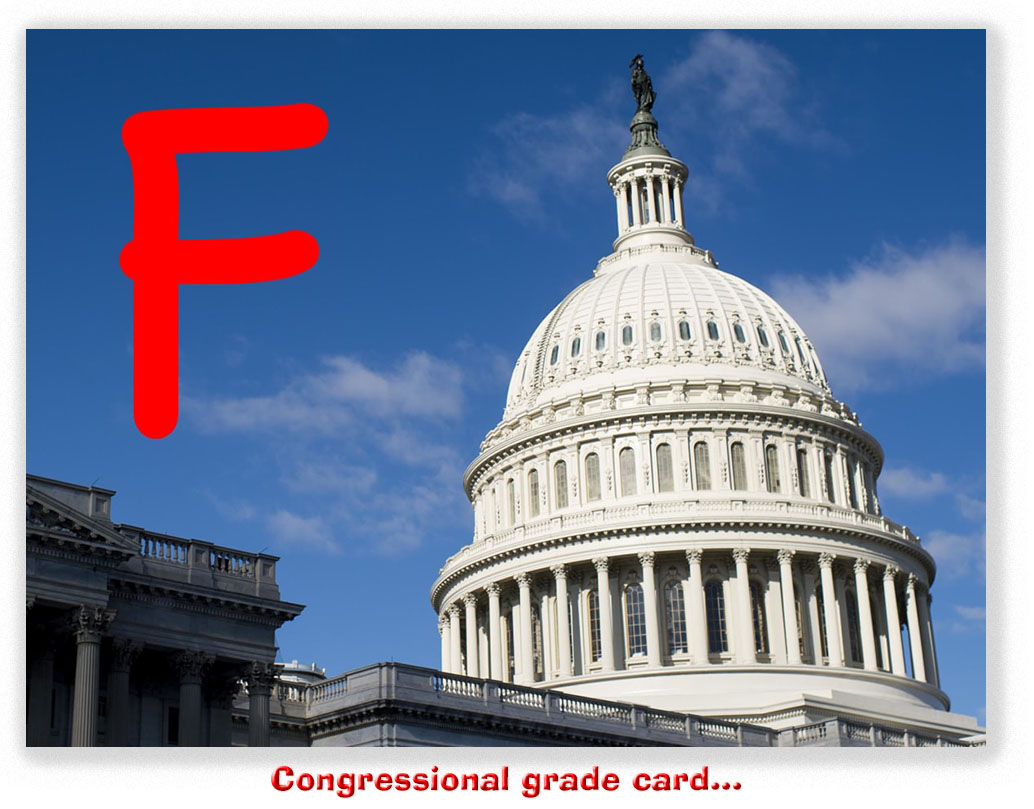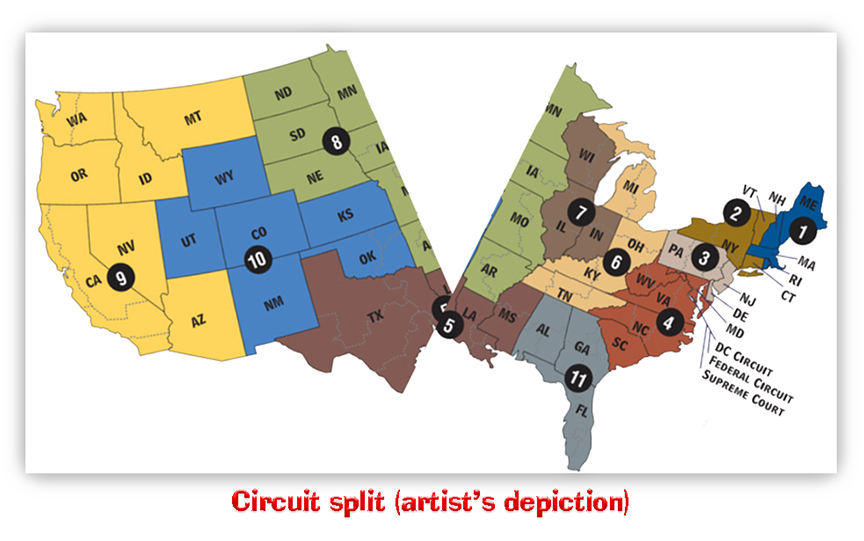We post news and comment on federal criminal justice issues, focused primarily on trial and post-conviction matters, legislative initiatives, and sentencing issues.

THE BOP’S NEW YEAR RESOLUTIONS
 Director Colette Peters has been at the Bureau of Prisons now for five months. As she begins her first complete calendar year at the agency, she’s not lacking for material when she compiles a list of new year resolutions.
Director Colette Peters has been at the Bureau of Prisons now for five months. As she begins her first complete calendar year at the agency, she’s not lacking for material when she compiles a list of new year resolutions.
Starting my ninth year of writing about the BOP – and being an average joe who is happier suggesting resolutions to other people than I am adopting resolutions of my own – I have some suggestions for Director in the unlikely event her list is too short.
(1) Change the Culture: The BOP has nowhere to go but up. Last year, the Partnership for Public Service‘s 2021 rankings of the best places to work in the federal government ranked the BOP in 431st place. This was out of 432 agencies. The BOP ranked dead last in 8 of 15 categories, including “effective leadership,” “innovation” and “teamwork.”
 (2) Hire people: Walter Pavlo observed last week that “hiring new staff in this environment is difficult.” National Council of Prison Locals president Shane Fousey called it, “a staffing crisis of epic proportions.” Staffing issues lead to inconsistent and nonexistent programming, poor healthcare, loss of opportunities for sentence credit and community confinement, and institutional safety issues.
(2) Hire people: Walter Pavlo observed last week that “hiring new staff in this environment is difficult.” National Council of Prison Locals president Shane Fousey called it, “a staffing crisis of epic proportions.” Staffing issues lead to inconsistent and nonexistent programming, poor healthcare, loss of opportunities for sentence credit and community confinement, and institutional safety issues.
Of course, you cannot hire the people you need to work at an agency that is feeding at the bottom of the federal employment hierarchy. No leadership, no teamwork, no innovation… no employees.
Just last week, Pavlo wrote that an FCI Miami inmate died choking on his own blood while in a COVID quarantine. His cellmate (apparently, quarantine was in the SHU), pounded and screamed for help for 90 minutes before a CO – who was responsible for multiple housing units, came along for count. Kareen Troitino, the local CO union president, said of the incident, “As a cost savings initiative, the Agency is jeopardizing lives by forcing one officer to supervise two units. This loss of life would have never happened if we had one officer in each building as we had in the past.”
(3) Clean Up Internal Investigations: Last month, the Senate Permanent Committee on Investigations found that BOP employees had abused female prisoners in at least 19 of the 29 federal facilities over the past decade. In June 2021, the Dept of Justice revealed that as of 2018, inmates reported 27,826 allegations of sexual victimization, or a 15% increase from 2015. Of the 27,826 allegations, over half were staff-on-inmate sexual abuse. The BOP has over 8,000 internal affairs misconduct allegations that haven’t been investigated.
 The misconduct ranges from BOP leaks and lies that placed Whitey Bulger in general population at USP Hazelton (where he survived for under 12 hours) to ”corruption at the US Penitentiary Atlanta in Georgia to the Dept of Justice’s failure to count almost 1,000 deaths in custody across the country, to abusive and unnecessary gynecological procedures performed on women in Dept of Homeland Security custody,” according to Sen. Jon Ossoff (D-GA).
The misconduct ranges from BOP leaks and lies that placed Whitey Bulger in general population at USP Hazelton (where he survived for under 12 hours) to ”corruption at the US Penitentiary Atlanta in Georgia to the Dept of Justice’s failure to count almost 1,000 deaths in custody across the country, to abusive and unnecessary gynecological procedures performed on women in Dept of Homeland Security custody,” according to Sen. Jon Ossoff (D-GA).
(4) Use the Tools Congress Gave You: Stephen Sady, Chief Deputy Federal Public Defender for the District of Oregon, recently wrote in the Federal Sentencing Reporter that the Sentencing Commission should fulfill its statutory obligation to make recommendations regarding correctional resources and programs. He told Walter Pavlo that “the BOP has failed to adequately implement critical legislation to improve the conditions of people in prison” and since the BOP hasn’t acted, the Sentencing Commission should.
The BOP could address staff shortages and morale problems by getting more people to home confinement, halfway house and early release with the need for USSC oversight, Pavlo also suggests the BOP could expand eligibility and availability of RDAP sentence reductions, “eliminate computation rules that create longer sentences… Implement broader statutory and guideline standards to file compassionate release motions any time extraordinary and compelling reasons exist… [and f]ully implement the First Step Act’s earned time credit program.’ Pavlo notes that “[n]o new legislation would be required for any of these reforms.”
 (5) Practice Openness: There’s an old admonition about not picking a fight with someone who buys ink by the barrel. It’s not so much ink these days, but a blemish on Peters’s honeymoon as director is the BOP’s continued awkward of the Ft. Worth Star-Telegram’s questions about allegations of systemic abuse at the women’s FMC Carswell.
(5) Practice Openness: There’s an old admonition about not picking a fight with someone who buys ink by the barrel. It’s not so much ink these days, but a blemish on Peters’s honeymoon as director is the BOP’s continued awkward of the Ft. Worth Star-Telegram’s questions about allegations of systemic abuse at the women’s FMC Carswell.
Although the Star-Telegram rated its reports of Carswell mismanagement and misconduct as one of its most important stories in 2022, the newspaper complained again this week that BOP “administrators have declined interview requests, given blanket statements in answer to questions and failed to provide detailed plans about how the Bureau of Prisons intends to address the problems.”
Associated Press, Biden signs bill forcing the federal Bureau of Prisons to fix outdated cameras (December 27, 2022)
Partnership for Public Service, 2021 Best Places to Work in the Federal Government rankings
Forbes, A Federal Public Defender Challenges U.S. Sentencing Commission To Help Fix The Bureau Of Prisons (December 28, 2022)
Forbes, Federal Inmate Dies Choking On His Own Blood While Locked In Cell At FCI Miami (December 29, 2022)
Amsterdam News, Senate committee finds widespread employee on inmate sex abuse in federal prisons (December 26, 2022)
Business Insider, Inside the federal West Virginia prison where gangster Whitey Bulger was beaten to death (December 31, 2022)
Ft Worth Star-Telegram, Fort Worth’s biggest stories of 2022: What will you remember most about this year? (December 31, 2022)
– Thomas L. Root





 That’s right… to no one.
That’s right… to no one.



 Of all the criminal justice reform bills in Congress – the
Of all the criminal justice reform bills in Congress – the 
















